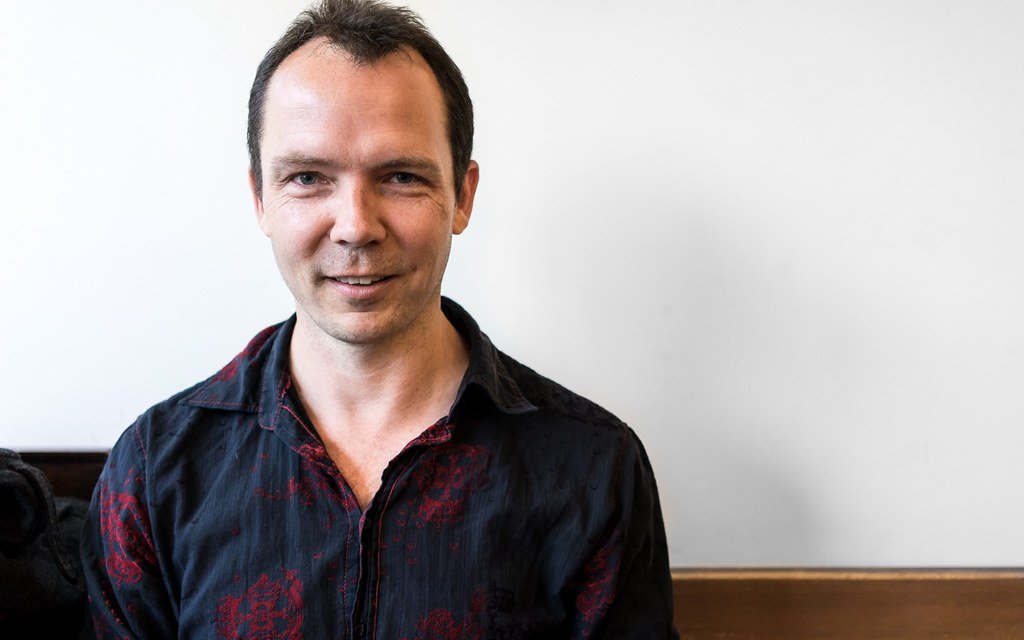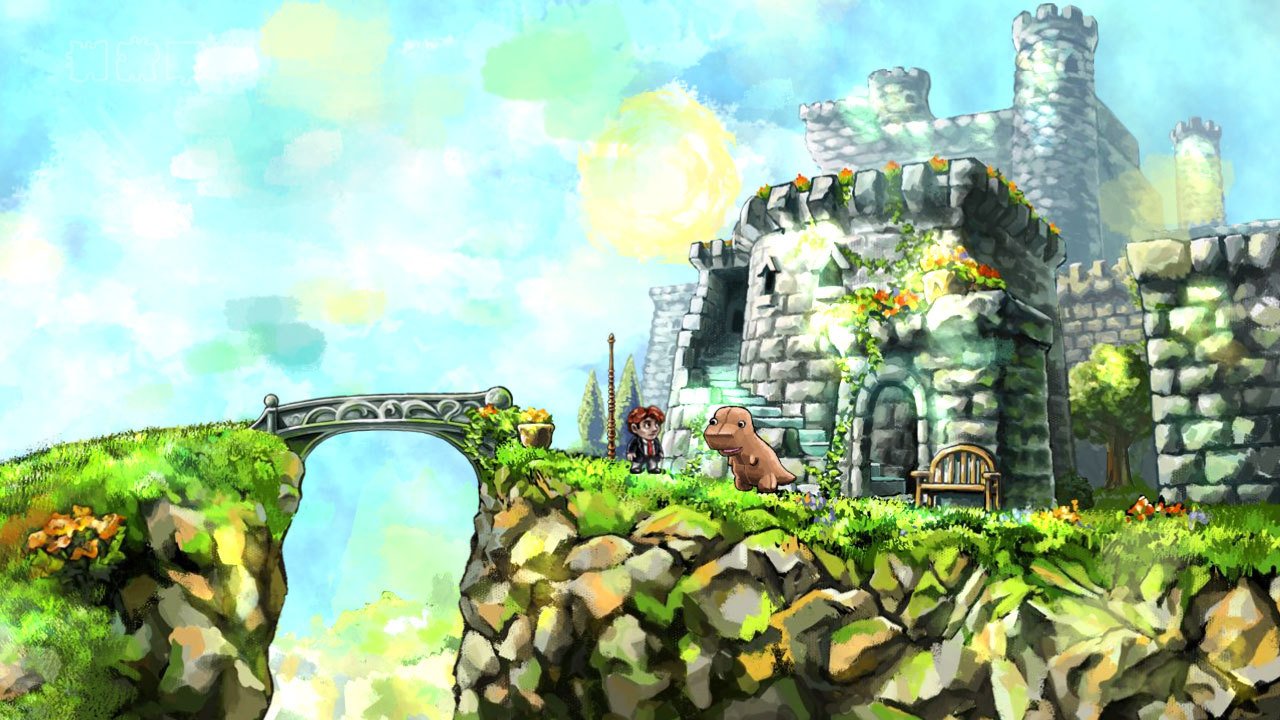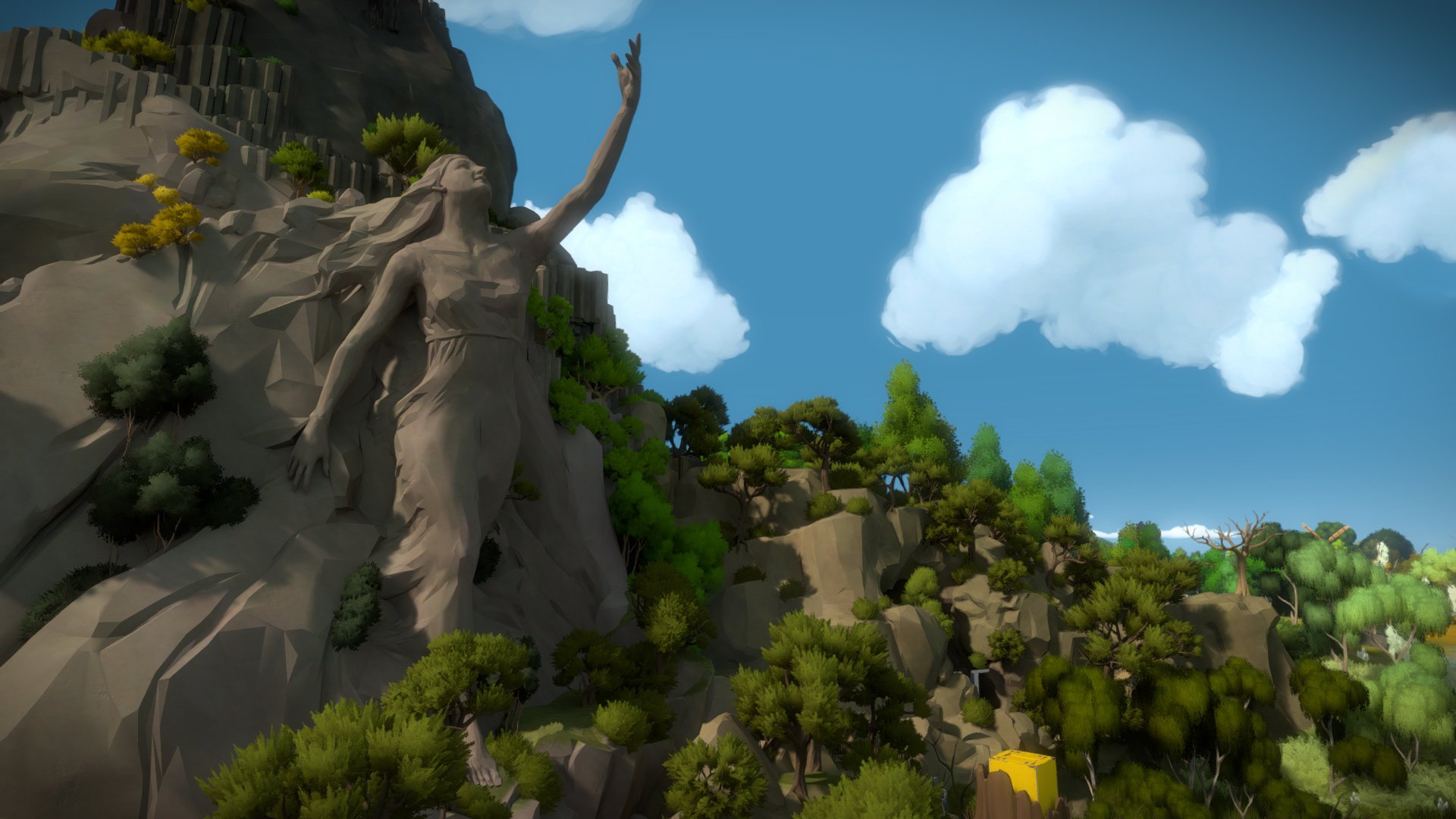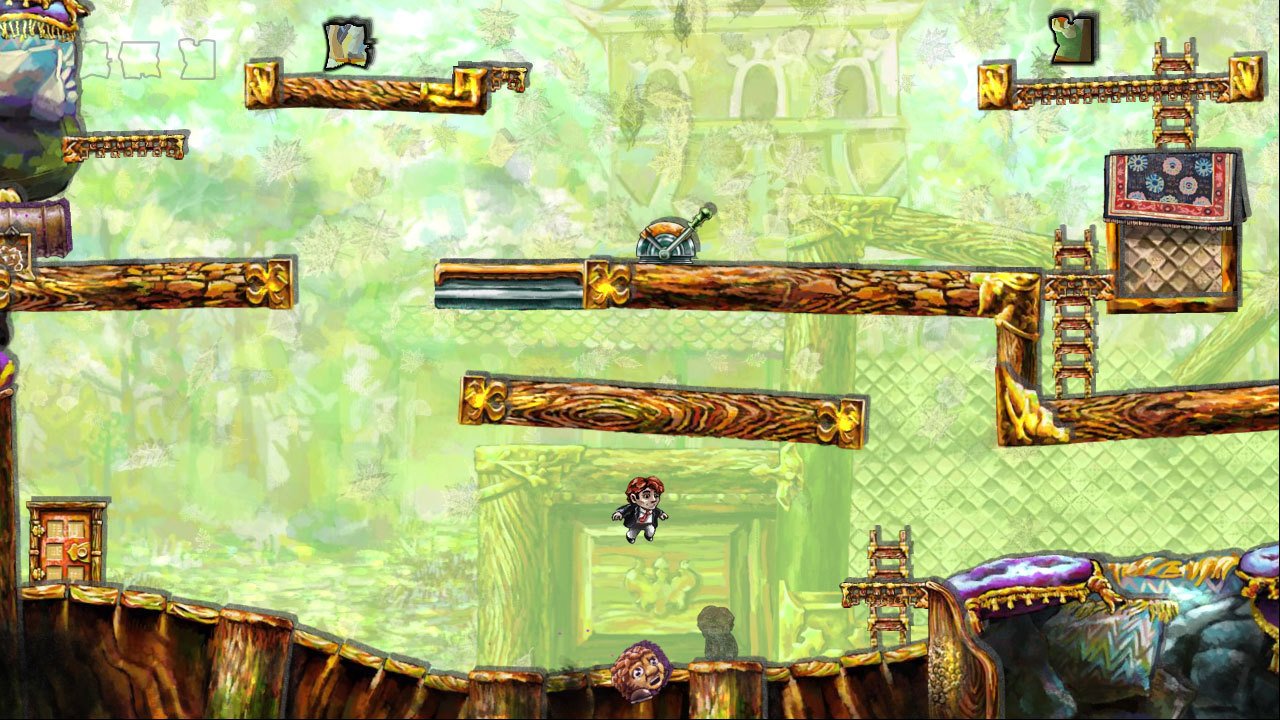
Braid made Jonathan Blow one of the brightest stars of the late-2000s indie development wave. Digital distribution via platforms like Xbox Live Arcade had finally opened up the walled console garden to share offbeat and esoteric indie games with the Xbox community. Blow consolidated that success in 2016 with the critically acclaimed The Witness, but feels that the initial promise of that heady time has gone unfulfilled, stating that game development has “stagnated” in the years since.
At Casual Connect London, Blow had a conversation about how the indie game industry is evolving with fellow indie developer Sam Browne, co-founder of Three Knots and a recipient of the Prince William Scholarship, which is supported by BAFTA and Warner.Bros.
“It’s easier to make a game than it ever was,” he began. “There are more people making games than there ever were. If you want to get into it, it’s easier to get into than it ever has been. So that’s all good. I would say though that if you talk about progress as a medium, are games getting better in their own right? I’m not sure.”
What progress there has been, he puts down to what he calls ambient evolution.

“Games improve gradually over time as designers have better things to look back on and refer to,” Blow continued. “I think that has generally been a constant positive trend, but there was a promise if you go back ten or twelve years ago – ‘Once all these independent people are making games, there’s going to be this great explosion of creativity and games are going to be really awesome!’ – and I think for the most part that most developers are too afraid to actually do that. There’s a small number of people who I would say actually do creative stuff, but everybody else is trying to be like a cheap AAA game.”
Blow laughs and apologizes, not for the last time, for his negative skew, though wasn’t particularly interested in ameliorating his perspective.
Browne asked: “Is the problem that too many indie developers are chasing industry trends?”
“Everybody has their own motivation, right?” Blow responded. “A lot of the time it’s just somebody thinks it’s cool to make a game and all their reference material in their head is like Call of Duty or something. So then they go and just essentially try to make that, with differences. Which is, I would say, a more innocent version of not being creative because you’re being excited about something, but it happens a lot.”
Browne suggested that there’s a greater diversity of themes and topics that games will now tackle, but Blow doesn’t agree. “I don’t think that’s happened,” he said. “There was a brief period around 2008 to 2011 when that expanded, and then it’s been stagnant pretty much. I don’t think you can just pick a topic and make a game about it, and have it be a great game. It doesn’t really work that way.”
Blow certainly seems wary of games that are made to serve a subject matter first, rather than designing a gameplay system that ties in with a theme. “The material of games, like interactivity, is its own topic”, he insisted. “You end up jamming things together that don’t really fit. I think that’s what most people who try to be creative end up doing.
“‘I want to make a game about some idea’ where ‘some idea’ is like a fiction idea, and it’s an idea that would have been better if it was a book, or film, or a song, and not a game. I think that happens a lot. For some reason nobody notices this problem or works on it. Most of these are not very good at games. They haven’t been and they continue to not be. When you ask is there progress, I would say there actually isn’t progress there.”
“I don’t want to be super negative,” he says, again. “I got off on a really negative start there!”
So what, Browne asked, is working? What are the games, who are the designers, that Blow believes are getting it right?

“It’s mostly people who pick very specific areas and work on them. For example, I’ve brought this up a few times, Stephen’s Sausage Roll, I think is one of the most impressive games ever made. It’s a game very few people have played. It’s a puzzle game, it’s pretty hard, but it does a very good job of exploring a certain space of interactivity.”
The problem, it seems, is that the games that are truly innovating (in Blow’s view) are not being talked about in development circles.
“I would categorize [Stephen’s Sausage Roll] as doing avant garde things, with regard to controls and understanding how players see, approach and solve problems, that most designers would be better off if they’d been exposed to and educated about, but nobody pays attention to this game. That’s one sign to me that things aren’t really progressing.
“There [are] some things in that game that are really daring and go right to the heart of the interactivity of games, like what is happening when you control a game, and they’re choices that most designers would not even think to make. There’s no conversation about it, and what that tells you is that almost nobody is in a position to notice what was done in the game. Maybe we’ll get there later as an industry, but we’re not there right now.”
The talk pivoted at this point to how this supposed lack of innovation impacts the actual development process. How can you balance the loftier ideals of pure gameplay design with the commercial demands of staying in business?

“Everybody is always concerned with what’s going on right now. I’ve been doing this since 1996 and every couple of years there [are] new things, and everybody’s just as panicked and interested in new things. You have to decide, as a developer, what time frame am I trying to play on? Am I a developer who’s concerned with one or two years, or am I building an arc where I’m really going to accomplish something in twenty years?
“If you’re playing for that longer term, then maybe it makes sense to not be so worried about the short term things. You can’t completely disregard the short term things or you won’t be able to eat any food, but I think the effort is not usually proportioned well. People spend most of their effort thinking ‘Oh my god, what do I do about streaming’ and not that much effort on ‘Is the game that I’m making really that good? Is it something that people will want to play in twenty years?’ I don’t know many developers who ask themselves that question honestly.”
Blow also doesn’t have much time for the idea that artistic ambition in game design is a recent phenomenon, because quite a few games in the 1980s were “really weird.” PC games, especially.
“They were often very artistic, very creative,” Blow remarked. “So if somebody wants to pat themselves on the back today because they made a game about emotions, people were doing that in the 1980s. If you’re talking about progress in exploring the medium, the progress has not been as large as people assume.”
The fluctuating staffing levels of Blow’s studio, Thekla, led to Browne questioning how (and why) architects were hired to consult on the visual design of The Witness. This, in turn, ended up detailing one of the areas where Blow thinks developers can do more to enhance their creativity by looking beyond the industry.
“We wanted to make this game, with this island, with interesting things on it,” Blow explained. “The game had to have gravitas, it had to be serious, and if you go to a game concept artist and ask them ‘Draw up some concepts for this fictional building’, if they’re not educated in buildings then what you get back maybe doesn’t have a certain depth to it. It’s hard to explain why this matters.
“For example, I was looking through a videogame magazine and there’s a large image on the page from some upcoming RPG, a single player RPG that everyone was excited about. The screenshot was like a bridge with some guards, typical RPG scene. The [design of the] bridge, I could tell now that I was thinking about this, was like a tiny footbridge but it had been scaled up by about ten times. It was just like this massive tiny footbridge, and it just looked naive.
“If you want to convince people that you’ve paid attention to the details, and given them something that’s well considered, then that kind of thing breaks that feeling in the player. That maybe doesn’t break the feeling for most players, since most players aren’t thinking about bridges, but there are other versions of that. Most games fail at that, to some degree.”
With such a gameplay-first viewpoint, you’d be forgiven for expecting Blow to keep other entertainment media at arm’s length, but it turns out that he takes a lot of inspiration from film, especially.
“I use other mediums as a reality check,” he explained. “If you read novels, you know how good stories can be, and you probably know where game stories land on that quality bar. If you’ve seen film, you know how good some kind of non-verbal communication can be. You watch, especially, directors who do long shots that are not boring, somebody like Tarkovsky or David Lynch. You can learn things by looking at any medium, but then you have to go back to your own work and ask yourself ‘Am I doing the games version of whatever these other things are doing?’ I’m not trying to do long cinematic shots [in a game] because those are always terrible, but are you doing something that’s as interesting? The answer is usually not quite, because it’s hard, but it’s a good way to keep yourself honest and working hard.”
Just don’t expect to see one of Blow’s games with story cutscenes any time soon. “I’m soundly on the gameplay side,” he admitted. “That’s the place that is the most sophisticated and interesting, and isn’t just a copy of what we see in other media. It’s a place where we’re making our own progress.”

“I’m interested in elements of stories,” he continued. “There are things in stories like mood, character, and setting. All of those are individual pieces of storytelling that work well in games. Games are good at making settings, they’re good at establishing mood. What they’re not good at is plot, so why are we copying these storytelling structures that have plot? I’m not that personally interested in this thing where we’re making games that are basically movies where you play in between the scenes. Now those games make a great deal of money right now.
“That’s not my primary goal in life. If that is your goal in life, you probably shouldn’t be in the games business anyway because there’s other places where you can make a lot more money for the same amount of work. What’s most popular is not always what’s best. And it’s not even the most popular, necessarily. If you look at the most popular games in the last couple of years, it’s been games like PUBG and Fortnite. Those aren’t story-based games.”
In closing, Blow added: “My number one beef with the younger generation of game makers is that there’s this idea that making games is about being in a community, and as long as you’re in that community, and feel good community feelings and make games, then you should succeed, and if you’re not succeeding then the world is making a mistake.
“The problem is that there’s a reality out there, and that reality is actually kind of harsh. They don’t care about your game. We wish they did, but they don’t. It’s nice if you have a community. It’s nice if you have friends. But the number one thing is making something that is interesting to people, and I wish we worked harder at that.”
Blow describes an industry that should be focused on creativity and true innovation, when it often isn’t. Unfortunately, with the discoverability and the overall marketplace being where it is, indie developers need to do whatever is necessary in order to fund their next project. Sometimes that will mean that they need to create the next Left 4 Dead and other times, it will require creative compromise and bootstrapping. When the stars align, when the money appears and the timelines line up, there’s more room for that level of true innovation that Blow wants the industry to aspire to.
Updated 5/30/2019
 GameDaily.biz © 2025 | All Rights Reserved.
GameDaily.biz © 2025 | All Rights Reserved.